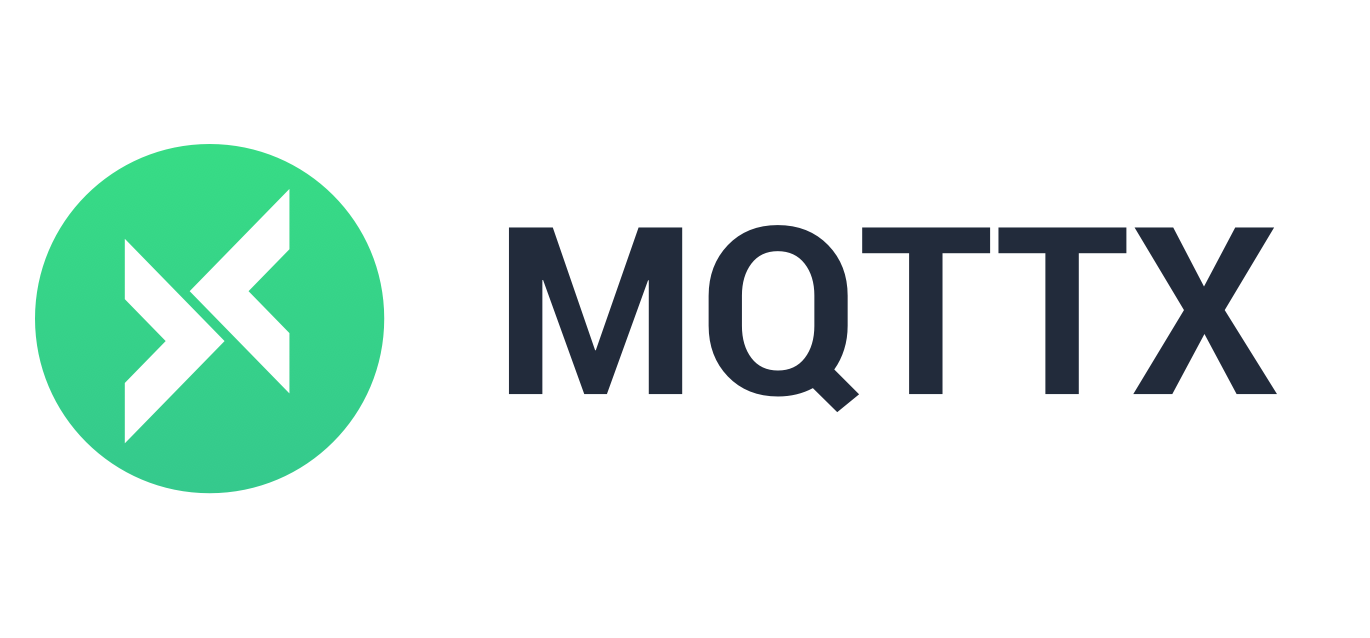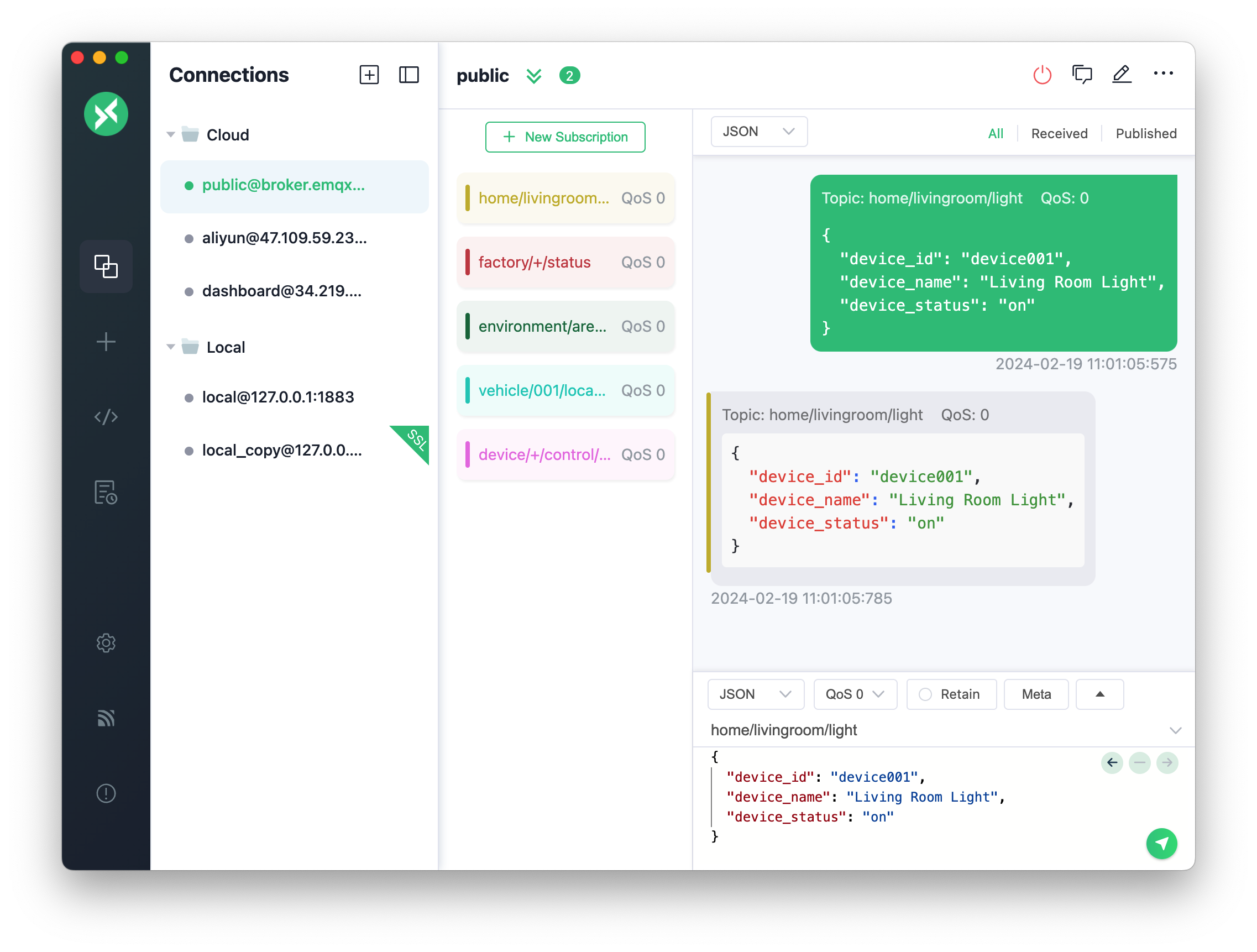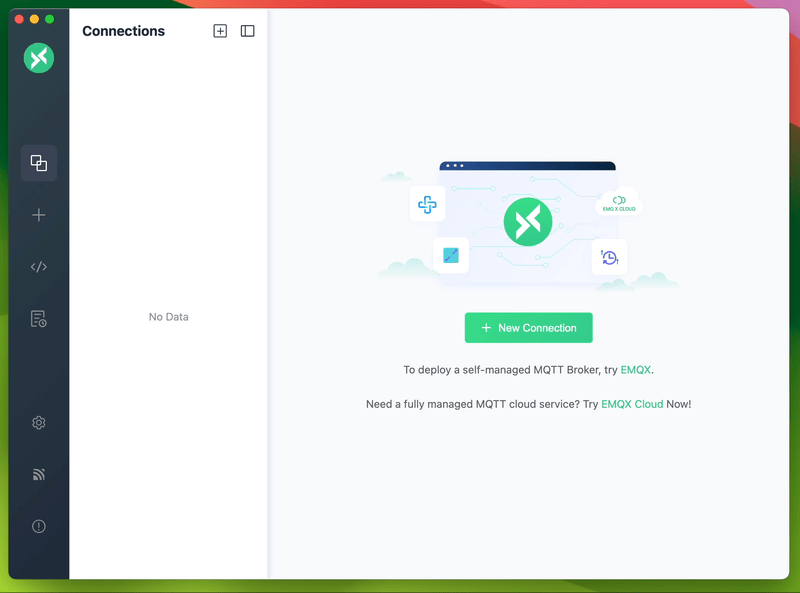MQTTX is a cross-platform MQTT 5.0 client tool open sourced by EMQ, which can run on macOS, Linux and Windows, and supports formatting MQTT payload.
MQTTX simplifies test operation with the help of a familiar, chat-like interface. It’s easy and quick to create multiple, simultaneous online MQTT client connections, and can test the connection, publishing, and subscription functions of MQTT/TCP, MQTT/TLS, MQTT/WebSocket as well as other MQTT protocol features.
MQTT stands for MQ Telemetry Transport. It is a publish/subscribe, extremely simple and lightweight messaging protocol, designed for constrained devices and low-bandwidth, high-latency or unreliable networks.
Currently available for download from these app stores
The macOS users can install MQTTX using brew cask
brew install --cask mqttxDownload from GitHub Releases and install it.
Alternative, you can download here.
See our documentation or manual for details.
-
Get MQTT Broker Ready.
-
If you do not need to deploy the MQTT Broker locally, you can use the public MQTT 5.0 Broker provided by EMQX Cloud for testing:
Broker IP: broker.emqx.io Broker TCP Port: 1883 Broker SSL Port: 8883
-
To run MQTT Broker locally, EMQX is recommended: An Open-Source, Cloud-Native, Distributed MQTT Broker for IoT.
-
-
Connection configuration. Click the
+button in the left menu bar and fill in the corresponding required fields in the form. -
After the connection information is configured, click the
Connectbutton in the upper right corner to create a connection and connect to MQTT Broker. -
After the MQTT is connected successfully, you can perform MQTT publish and subscription tests.
MQTTX is designed to connect to test MQTT Brokers such as EMQX, The one-click connection and simple graphical interface make it easy to connect to EMQX or EMQX Cloud to debug and explore functional features.
Sign up EMQX Cloud for 14 days free trial
Download EMQX locally right now
- Follow @EMQTech on Twitter.
- If you have a specific question, check out our discussion forums.
- For general discussions, join us on the official Discord team.
- Keep updated on EMQX YouTube by subscribing.
Recommended version for Node environment:
- v16.*.*
# Clone
git clone [email protected]:emqx/MQTTX.git
# Install dependencies
cd MQTTX
yarn install
# Compiles and hot-reloads for development
yarn run electron:serve
# Compiles and minifies for production
yarn run electron:buildAfter the building is successful, the corresponding installation file for the successful build ing will appear in the dist_electron directory.
If you need to package it as an installation package for an independent operating system, please refer to the following command:
# For Windows
yarn run electron:build-win
# For Linux
yarn run electron:build-linux
# For macOS
yarn run electron:build-macPlease make sure to read the Contributing Guide before making a pull request.
-
A series of blogs to help developers get started quickly with MQTT in PHP, Node.js, Python, Golang, and other programming languages.
-
We have selected popular MQTT client SDKs in various programming languages and provided code examples to help you quickly understand the use of MQTT clients.
Apache License 2.0, see LICENSE.














